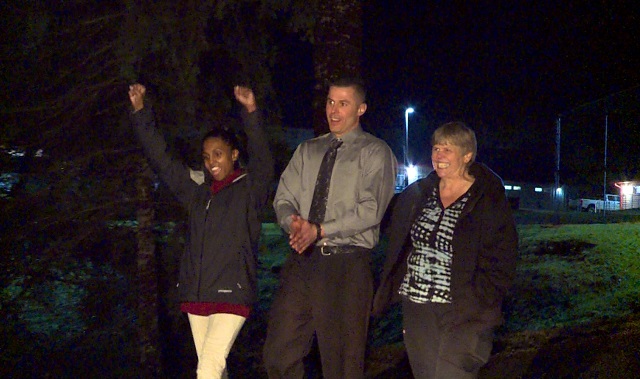PORTLAND, Ore. (KOIN) — In a 6-3 decision, the United States Supreme Court ruled Monday that juries in state criminal trials must be unanimous to convict a defendant.
The decision affects Oregon and Louisiana, though Louisiana votes changed the law for crimes committed beginning in 2019.
Reaction to the high court’s decision was swift.
Oregon AG Rosenblum: ‘This is good news!’
Attorney General Ellen Rosenblum applauded the 6-3 Supreme Court decision which “reversed its erroneously decided opinion in a 1972 Oregon case (Apodaca v. Oregon), in which it upheld non-unanimous jury verdicts in state criminal cases.”

“This is good news! It is an embarrassment to our otherwise progressive state that we are the only state in the country with a law in our constitution that allows criminal convictions without juror unanimity,” Rosenblum said in a statement.
She added officials expected this decision and its ramifications.
“We have been working closely for months with our appellate courts and with the leadership of the criminal defense bar to plan our case review and the judicial process that will ensue. We will also need to be in contact with the many crime victims and their families who are impacted by this decision.”
Appeals of convictions likely
A jury in 2018 voted 11-1 to convict Chad Pitcher of manslaughter in North Plains. Pitcher is likely to get a new trial following this Supreme Court ruling, the Washington County District Attorney said.
Retired Clatsop County DA Josh Marquis thinks the ruling may affect cases going back decades.
“This could potentially overturn thousands of existing Oregon convictions for manslaughter, rape, robbery, essentially any felony with the exception of murder,” Marquis told KOIN 6 News.
Portland defense attorney Ryan Scott said the ruling only applies to cases on the first stage of appeal in the last several years.
“I’m sure rumors will be flying around the prisons these days, the doors are about to come flying open. That’s just not going to happen,” Scott said. “Anyone who thinks otherwise is just scaremongering.”
Both sides agree it’s going to take years of appeals to decide which convicts have a right to have their non-unanimous verdicts overturned.
For example, Chad Pitcher was also convicted unanimously on a lesser crime. The Washington County DA thinks he’ll have to serve that 5-year sentence as his manslaughter case goes back through the justice system.
Regardless of what happens individually, defense attorney Ryan Scott supports this ruling.
“It helps eliminate a horrible stain on Oregon’s jurisprudence.”
Statement from the Oregon Judicial Department
Following the Supreme Court ruling, the Oregon Judicial Department said they are working with the Department of Justice and the Office of Public Defense Services to find cases where a conviction should be returned to the court for possible retrial. They’re also working on other appellate issues.
Any decision is not expected for weeks. “It then will take many months to brief, argue, and decide the cases in which further appellate review is necessary,” the Oregon Judicial Department said in a statement.
There are 74 petitions under review at this time at the Oregon Supreme Court that may be affected by this decision. In the Court of Appeals, there are more than 2900 in different stages.
‘Ends a practice founded on ugly prejudices’
In a statement, the Oregon Innocence Project said the decision “ends a practice founded on ugly prejudices that even today has tended to exclude minority voices on juries from being given their full weight. Oregon’s non-unanimous jury law stems from our state’s shameful history of anti-Semitism, anti-Catholicism, and anti-immigrant hate. We should have put an end to it before now.”
Supreme Court: Criminal juries must be unanimous to convict
Bloodstained shoe helps overturn Oregon man’s 2011 conviction
Brittney Plesser, the Senior Staff Attorney for the Oregon Innocence Project, pointed out their former clients, Josh Horner and Nick McGuffin, served lengthy prison sentences “following wrongful convictions by non-unanimous juries.” Plesser noted Brad Holbrook served 6 years in prison and waited 19 years before his conviction was overturned.

“The process of having to convince all members of the jury of a particular verdict seems to have a protective effect against wrong decisions,” Plesser said. “Under a unanimous system, dissenting jurors encourage a vigorous debate in pursuit of agreement that supports the proper functioning of our criminal justice system.”
The Center for American Progress agreed. In a statement, Sam Hananel said:
“The laws allowing non-unanimous verdicts in both Louisiana and Oregon were born of racist intent and helped perpetuate the racial disparities that have long plagued the U.S. justice system. Convicting a person of a crime and holding them accountable are grave and serious responsibilities, and the threshold for both outcomes should remain high.”
Unusual coalition of justices
The justices’ 6-3 vote overturned the conviction of Evangelisto Ramos. He is serving a life sentence in Louisiana for killing a woman after a jury voted 10-2 to convict him in 2016. Oregon is the only other state that allows for non-unanimous convictions for some crimes.
The decision produced an unusual lineup of justices, with liberals Stephen Breyer, Ruth Bader Ginsburg and Sonia Sotomayor and conservatives Brett Kavanaugh, Clarence Thomas and Gorsuch supporting Ramos.
Chief Justice John Roberts and Justice Samuel Alito, two conservatives, were in dissent along with liberal Justice Elena Kagan.
The Associated Press contributed to this report